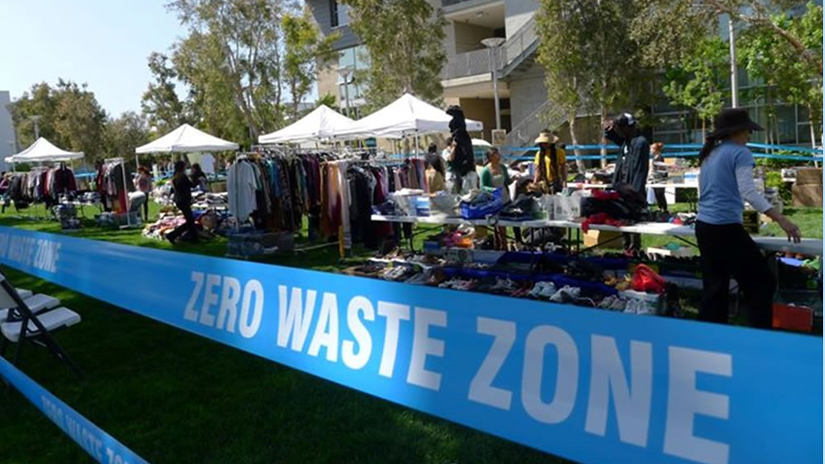Justice, Equity, Diversity, and Inclusion are central components of creating a more just and sustainable world.
For too long institutionalized environmental discrimination has created sacrifice zones where landfills, chemical plants, refineries, and distribution warehouses have been permitted in black, indigenous, and low-income communities because they are less likely to be in positions of power to advocate for themselves. The soil, water and air pollution created by these facilities create health issues for the residents. Furthermore, access to affordable public transit and healthy food is scarce, as are shade trees and parks in these neighborhoods. All together, these factors create heavy burdens and stressors on our students who come from those neighborhoods.
The coming transition to a clean energy economy must respect all people and acknowledge the contributions and sacrifices that have come from those who have not had a seat at the decision-making table while also creating healthy neighborhoods and well-paying jobs that provide a sense of pride in making a positive impact on their world.
- When choosing guest speakers we look for those who reflect the students we are trying to reach.
- We integrate social justice topics into Earth Week and Sustainability Week events.
- Staff training on JEDI topics
- Driving the college to decarbonize our buildings and fleet vehicles at every opportunity to reduce our contribution to the problem.
- Increase our recycling and composting rates to decrease the amount being sent to landfills.
- Reduce potable water consumption to lower indirect carbon emissions from imported water.
- Developing new workforce training programs that provide well-paying jobs in industries that are cleaning up our environment.
- The Organic Learning Garden teaches students to be self-sufficient with their food production.
- We continue to grow and innovate the access to reliable, affordable transportation options students have to get a quality education through programs like BBB, GoPass and safe cycling routes to campus.
- Provide free bike maintenance assistance to students (thanks to the Associated Students) through Bikerowave.org
There is still a lot to do and learn so we invite you to be part of the journey. Contact us Sustainability@smc.edu
| JEDI Resources at SMC | ||
|---|---|---|
In 2008, Dr. Tsang signed The American College & University Presidents Climate Commitment. This program commitment is a high-visibility effort to address global warming by garnering institutional commitments to neutralize greenhouse gas emissions, and to accelerate the research and educational efforts of higher education to equip society to re-stabilize the earth’s climate. Building on the growing momentum for leadership and action on climate change, the President’s Climate Commitment provides a framework and support for America’s colleges and universities to go climate neutral. The Commitment recognizes the unique responsibility that institutions of higher education have as role models for their communities and in training the people who will develop the social, economic and technological solutions to reverse global warming.
Presidents signing the Commitment are pledging to eliminate their campuses’ greenhouse gas emissions over time. In accordance with the commitment, thus far, SMC has completed the following steps in effort to reduce its carbon footprint:
- Completing an emissions inventory
- Within two years, setting a target date and interim milestones for becoming climate neutral.
- Taking immediate steps to reduce greenhouse gas emissions by choosing from a list of short-term actions.
- Integrating sustainability into the curriculum and making it part of the educational experience.
- Making the action plan, inventory and progress reports publicly available.
The college and university presidents and chancellors who are joining and leading the Commitment believe that exerting leadership in addressing climate change will stabilize and reduce their long-term energy costs, attract excellent students and faculty, attract new sources of funding, and increase the support of alumni and local communities.
Following the lead set by the SMC Associated Students in 2010, the SMC Board of Trustees passed Board Policy 2480 Zero Waste Events.
The Board of Trustees recognizes and affirms the economic and environmental benefit of Zero Waste Practices in diverting food waste from landfill. Zero Waste includes recycling but goes beyond recycling by taking a whole system approach to the vast flow of resources and waste through human society. Zero Waste maximizes recycling, minimizes waste, reduces consumption and ensures that products are made to be reused, repaired or recycled back into nature or the marketplace. Industry standard for Zero Waste is 90 percent diversion of waste, allowing for minor waste generation at events.
In support of Santa Monica College’s institutional commitment to sustainability, Zero Waste practices will be integrated into all college events where food and related materials are present. Approved 1/12/2010
If you need assistance organizing a zero waste event, read this guide to Zero Waste Events.





 In 2018, and again in 2020, SMC's President/ Superintendent, Dr. Katheryn Jeffery,
re-affirmed SMC's
In 2018, and again in 2020, SMC's President/ Superintendent, Dr. Katheryn Jeffery,
re-affirmed SMC's